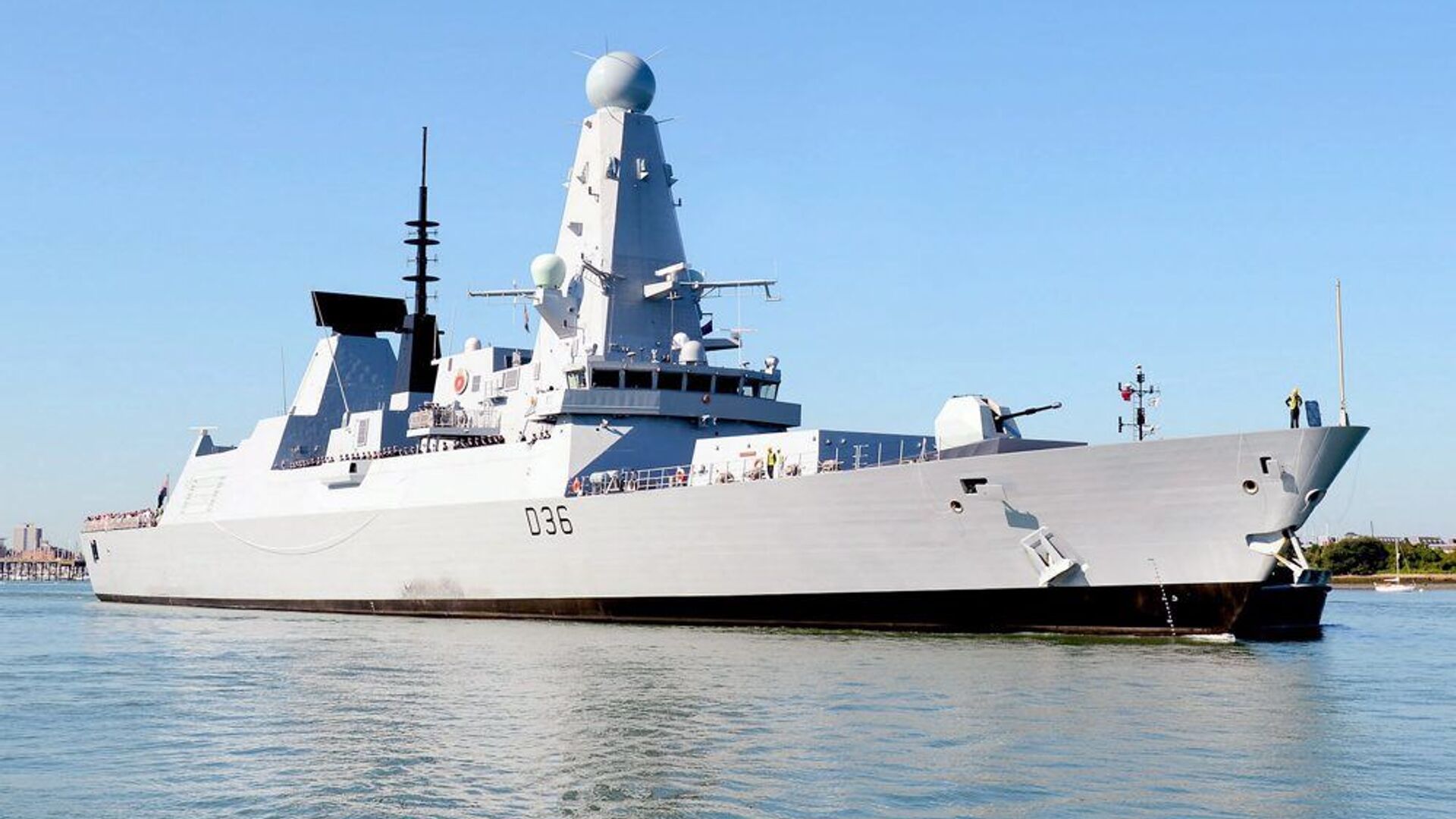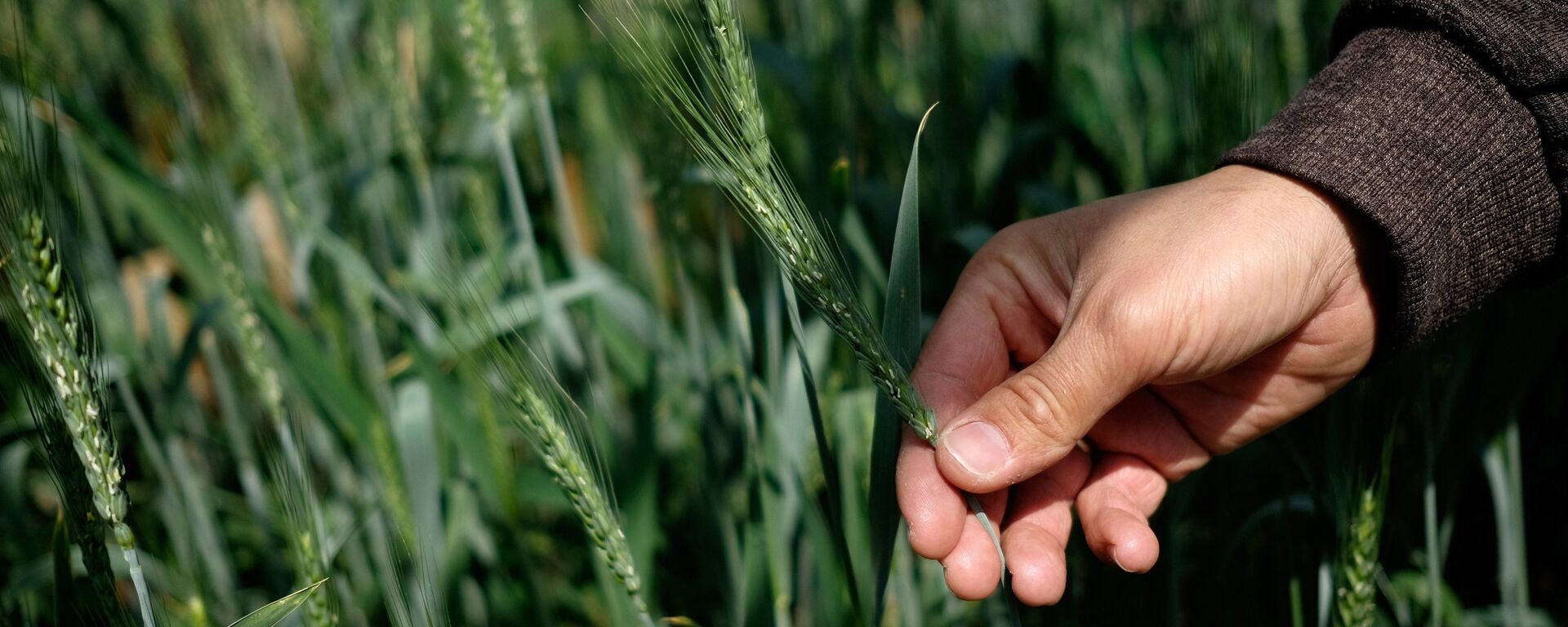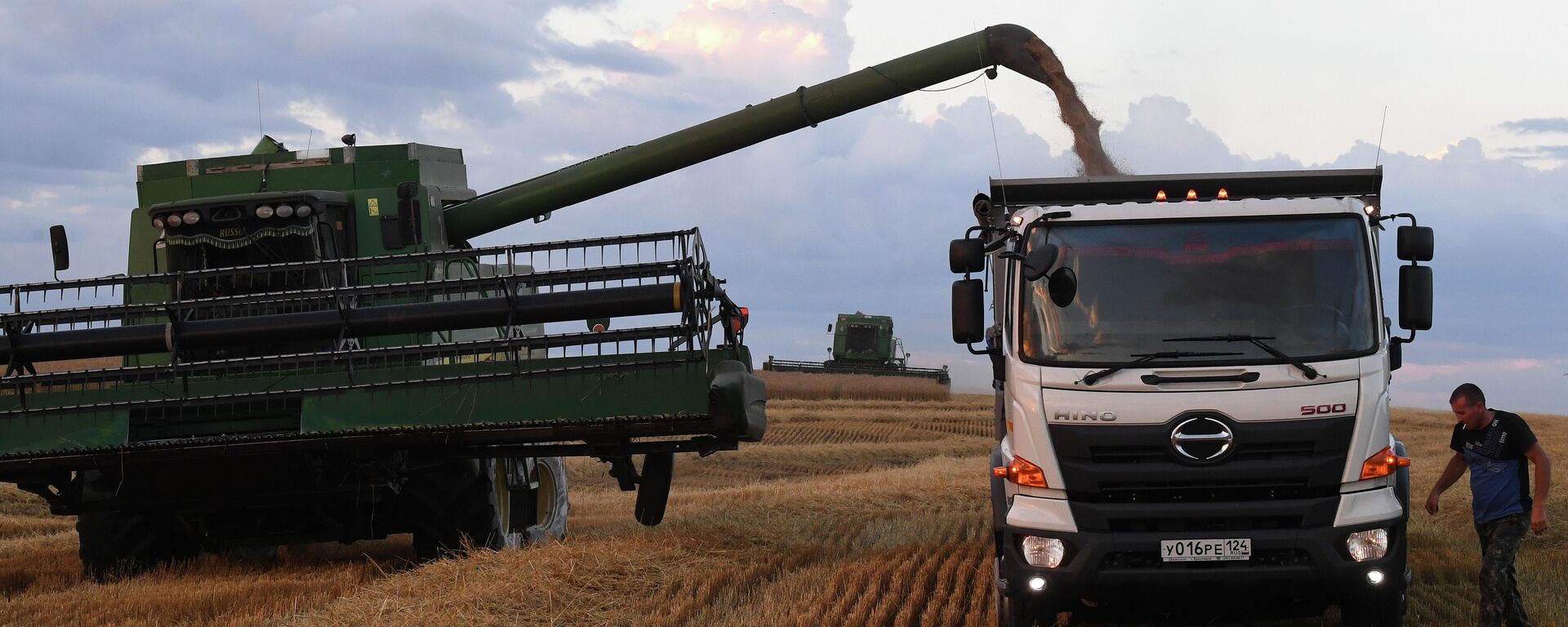https://sputnikglobe.com/20220524/uk-may-protect-ukrainian-freighters-from-russian-threat-in-black-sea-amid-fears-of-global-famine-1095735889.html
UK May ‘Protect’ Ukrainian Freighters From ‘Russian Threat’ in Black Sea Amid Fears of Global Famine
UK May ‘Protect’ Ukrainian Freighters From ‘Russian Threat’ in Black Sea Amid Fears of Global Famine
Sputnik International
On Monday, Kremlin spokesman Dmitry Peskov stressed that the threat of global hunger emanates from the anti-Russian sanctions launched by the West rather than... 24.05.2022, Sputnik International
2022-05-24T08:51+0000
2022-05-24T08:51+0000
2023-05-28T15:19+0000
russia
ukraine
odessa
warships
special operation
weapons
grain
united kingdom (uk)
https://cdn1.img.sputnikglobe.com/img/107662/98/1076629838_0:50:1001:613_1920x0_80_0_0_2b033d978036b2ab545f5105584dc3bb.jpg
With Russia’s special military operation under way in Ukraine, the UK is considering sending Royal Navy warships to provide safe passage for vital grain exports from the Ukrainian port of Odessa in order to avoid global famine, The Daily Mail has reported.Landsbergis added that some other NATO allies and countries which rely on the grain, such as Egypt, would be willing to provide military support for such a corridor.According to The Times, the plan stipulates that the UK warships would help clear the area around Odessa from mines and then provide protection for Ukrainian freight ships loaded with grain as they head across the Black Sea.The Times reported that long-range missiles could also be deployed to deter any possible Russian attempts to sabotage the corridor. Denmark has reportedly pledged a batch of its Harpoon anti-ship missiles and a launcher to Kiev to help Ukraine defend its freight vessels exporting grain.Reuters, in turn, quoted an unnamed Western official as saying that any corridor designed to secure safe passage for food exports out of Odessa could only occur with Russia’s consent.This comes after Kremlin spokesman Dmitry Peskov underscored on Monday that Russia is not the source of the threat of global hunger, as the West accuses Moscow of blocking Ukrainian ports and disrupting grain supplies, which in turn purportedly threatens food shortages and political unrest in countries in Africa, the Middle East and Asia.He said that Russia “absolutely agrees” with the UN’s stand that the conditions for a global food crisis are currently emerging, adding that the topic was discussed during a recent meeting between Russian President Vladimir Putin and UN Secretary General Antonio Guterres.According to Peskov, Russia and Ukraine have always been reliable grain exporters, but "Ukraine's actions to mine the waters of the Azov and Black Seas have led to the fact that merchant shipping is virtually impossible [there], because it is dangerous.”“And in order for navigation to be resumed, special measures are needed. That's what the president was talking about”, Peskov noted.He spoke after Russia’s first deputy UN envoy Dmitry Polyansky said last week thar “a new threshold of hypocrisy has been reached”, in response to Ukrainian Foreign Minister Dmitry Kuleba’s claims that Moscow is blocking Ukrainian ports to prevent Kiev’s food exports.The remarks were preceded by Russia's UN envoy Vasily Nebenzya said that Ukrainian grain “is being pumped into the granaries of European countries as payment for weapons received by Kiev from the West,” which blames Russia for the global food crisis.Last month, Deputy Foreign Minister Andrei Rudenko, for his part, emphasised that the US and the EU lifting their anti-Russian sanctions could resolve the problem of the looming world food crisis and that the sanctions hinder free trade.On 24 February, Russia launched a special operation to demilitarise and de-Nazify Ukraine after the breakaway republics of Donetsk and Lugansk appealed for Moscow’s help in defending themselves against Kiev’s provocations. Western countries retaliated by rolling out a comprehensive sanctions campaign against Russia.
https://sputnikglobe.com/20220521/moscow-calls-for-joint-work-on-resolving-trade-issues-within-wto-to-solve-food-crisis-1095691539.html
https://sputnikglobe.com/20220412/food-crisis-caused-by-ukrainian-conflict-may-cost-world-8-9bln---un-wfp-1094712117.html
ukraine
odessa
united kingdom (uk)
Sputnik International
feedback@sputniknews.com
+74956456601
MIA „Rossiya Segodnya“
2022
Oleg Burunov
https://cdn1.img.sputnikglobe.com/img/07e4/09/0b/1080424846_0:0:2048:2048_100x100_80_0_0_3d7b461f8a98586fa3fe739930816aea.jpg
Oleg Burunov
https://cdn1.img.sputnikglobe.com/img/07e4/09/0b/1080424846_0:0:2048:2048_100x100_80_0_0_3d7b461f8a98586fa3fe739930816aea.jpg
News
en_EN
Sputnik International
feedback@sputniknews.com
+74956456601
MIA „Rossiya Segodnya“
Sputnik International
feedback@sputniknews.com
+74956456601
MIA „Rossiya Segodnya“
Oleg Burunov
https://cdn1.img.sputnikglobe.com/img/07e4/09/0b/1080424846_0:0:2048:2048_100x100_80_0_0_3d7b461f8a98586fa3fe739930816aea.jpg
ukraine, odessa, warships, special operation, weapons, grain, united kingdom (uk)
ukraine, odessa, warships, special operation, weapons, grain, united kingdom (uk)
UK May ‘Protect’ Ukrainian Freighters From ‘Russian Threat’ in Black Sea Amid Fears of Global Famine
08:51 GMT 24.05.2022 (Updated: 15:19 GMT 28.05.2023) On Monday, Kremlin spokesman Dmitry Peskov stressed that the threat of global hunger emanates from the anti-Russian sanctions launched by the West rather than Russia as such. Washington and its allies slapped “severe” sanctions on Moscow over its special military operation in Ukraine, which has been continuing since 24 February.
With Russia’s
special military operation under way in Ukraine, the UK is considering sending Royal Navy warships to provide safe passage for vital grain exports from the Ukrainian port of Odessa in order to avoid global famine, The Daily Mail has reported.
The newspaper cited Lithuanian Foreign Minister Gabrielius Landsbergis as saying that he had spoken to UK Foreign Secretary Liz Truss about creating a “protective corridor” from Odessa.
Landsbergis added that some other NATO allies and countries which rely on the grain, such as Egypt, would be willing to provide military support for such a corridor.
According to The Times, the plan stipulates that the UK warships would help clear the area around Odessa from mines and then provide protection for Ukrainian freight ships loaded with grain as they head across the Black Sea.
The Times reported that long-range missiles could also be deployed to deter any possible Russian attempts to sabotage the corridor. Denmark has reportedly pledged a batch of its Harpoon anti-ship missiles and a launcher to Kiev to help Ukraine defend its freight vessels exporting grain.
Reuters, in turn, quoted an unnamed Western official as saying that any corridor designed to secure safe passage for food exports out of Odessa could only occur with Russia’s consent.
“Clearly the Russians are dominating that area. It would require the permission of the Russians, some sort of agreement to allow that to take place. It would require some sort of security guarantee, I think from Turkey, to make it a reality. I think the thing that we'd have to rule out is any sense that this could be done without Russia's permission,” the source pointed out.
This comes after Kremlin spokesman Dmitry Peskov underscored on Monday that Russia is not the source of the threat of global hunger, as the West accuses Moscow of blocking Ukrainian ports and disrupting grain supplies, which in turn purportedly threatens food shortages and political unrest in countries in Africa, the Middle East and Asia.
“[…] As for the maritime transportation [of grain]-related method, we say that it is not we who are the source of this problem that leads to the threat of world famine. The sources of this problem are those who imposed sanctions against us, and the sanctions themselves, which are in effect”, Peskov told reporters.
He said that Russia “absolutely agrees” with the UN’s stand that the conditions for a global food crisis are currently emerging, adding that the topic was discussed during a recent meeting between Russian President Vladimir Putin and UN Secretary General Antonio Guterres.
“[…] As for grain, the president said that the anti-Russian sanctions have led to the collapse [in supplies] that is now in place”, the Kremlin spokesman added.
According to Peskov, Russia and Ukraine have always been reliable grain exporters, but "Ukraine's actions to mine the waters of the Azov and Black Seas have led to the fact that merchant shipping is virtually impossible [there], because it is dangerous.”
“And in order for navigation to be resumed, special measures are needed. That's what the president was talking about”, Peskov noted.
He spoke after Russia’s first deputy UN envoy Dmitry Polyansky said last week thar “a new threshold of hypocrisy has been reached”, in response to Ukrainian Foreign Minister Dmitry Kuleba’s claims that Moscow is blocking Ukrainian ports to prevent Kiev’s food exports.
“You know better than anyone that Russia does not block the export of food from Ukrainian ports. You keep [the ports] mined and use foreign ships as human shields,” Polyansky insisted. He added that the ongoing land-based food exports from Ukraine “don’t go to Africa, but pay the bills for [deliveries of] weapons” supplied by the US and a number of EU countries.
The remarks were preceded by Russia's UN envoy Vasily Nebenzya said that Ukrainian grain “is being pumped into the granaries of European countries as payment for weapons received by Kiev from the West,” which blames Russia for the global food crisis.
Last month, Deputy Foreign Minister Andrei Rudenko, for his part, emphasised that the US and the EU lifting their anti-Russian sanctions could resolve the problem of the looming world food crisis and that the sanctions hinder free trade.
On 24 February,
Russia launched a special operation to demilitarise and de-Nazify Ukraine after the breakaway republics of Donetsk and Lugansk appealed for Moscow’s help in defending themselves against Kiev’s provocations. Western countries retaliated by rolling out a comprehensive sanctions campaign against Russia.





